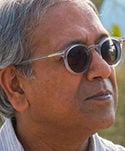As the annual summit of the United Nations Framework Convention on Climate Change (UNFCCC) wound down towards its final hours in Durban, South Africa, on Friday, the blame game by rich nations became more vicious. European Union Climate Commissioner Connie Hedegaard started the day by singling out India and calling it a deal breaker. India’s expectedly furious reaction was supported by the African Group within an hour. China also got a part of the blame, though it was more muted, since the Chinese delegation here has been making its points loud and clear since the summit started on 28 November.
The main issue at stake – EU wants a roadmap by which all countries will agree to commit greenhouse gas (GHG) emission reductions under a legally binding treaty. Only then will it agree to reduce its own emissions under the second commitment period of the Kyoto Protocol. India, China and other developing countries want the commitments under the protocol first. Only then are they willing to look at the roadmap.
The other related point of contention – EU wants negotiations for the new treaty to start now, end by 2015 and come into force by 2020. India wants to wait for the review of the next report of the Intergovernmental Panel on Climate Change before starting the negotiations. The review is expected in 2015.
India’s Environment Minister Jayanthi Natarajan said her country was open to discussion if issues of equity – the right to carbon space – were taken into account. Within an hour of the EU tirade, the African Group came out in support of India.
Hedegaard said the BASIC countries – Brazil, South Africa, India and China – were split over the issue, with Brazil and South Africa ready to commit to a legally binding treaty, negotiations for which could start now. Ms Natarajan denied that there was any split in the BASIC group. Chief negotiator of the African Group, Nsala Tosi Bibanda Mpanu Mpanu of the Democratic Republic of Congo, also said he did not see any split in the BASIC group.
Hedegaard said while China had shown some flexibility with regard to the EU proposal, India was maintaining a “relatively tough stand”. She said that EU’s roadmap has been accepted by a majority of countries – small island states and least developed countries included. “But the success and failure of Durban depends on some countries that are not committed to the roadmap. So we have to get them on board.”
Asked by The Third Pole to specify the sticking points with India, Hedegaard said: “Legal form of the future agreement. India wants to continue two tracks – legal and voluntary – while more and more countries have realised that we should not for all eternity keep two tracks.” For many years, India has been saying rich countries must make legally binding commitments to cut their emissions because most of the extra GHG present in the atmosphere today has been put there by them. Emission controls by developing countries should be voluntary, India has added.
“Of course we should not all commit the same but we have to find a formula that recognises the reality of 21stcentury,” Hedegaard responded. “The second point is about the time line – when should we start negotiating for the legal agreement and when should it enter into force.”
Natarajan said, “I had a meeting with the BASIC ministers this morning (Friday) and our stand has been the same. I have come here with an open mind but we want to know the content of the legally binding deal. We want to know if they are going to give us a ratifiable Kyoto in return.”
She said India’s demands have been “extremely reasonable” and “we want to know how common but differentiated responsibility, equity, intellectual property rights and trade measures will figure in the treaty.”
Mpanu Mpanu said, “It may be easy for some countries to commit to a legally binding treaty, it may be difficult for some others. Each country has its own situation.” He pointed out that India’s per capita GHG emission was a small fraction of that of the EU. Criticizing Hedegaard, he said: “We shouldn’t ostracize anyone. We should let them do what they can. If India is called a deal-breaker, how should we call the US?”
The US has maintained that it will not enter a legally binding treaty. Though EU negotiators think it may change its mind if all other countries agree, and the chief US negotiator Todd Stern indicated as much here on Thursday, within hours the US State Department put out a statement from Washington contradicting him.
Asked if the African Group was being “moderate” on China and India, Mpanu Mpanu said rich countries were trying to shirk their historic responsibility for having put so much GHG in the air since the start of the Industrial Age.
He also criticized the EU for seeking a roadmap to the new treaty before committing itself to emission reductions under the second commitment period of the Kyoto Protocol. “For us, it is the wrong sequencing. We want the Kyoto Protocol first. We don’t want to throw away the principle of common but differentiated responsibility” which characterizes the obligations under the protocol.
Mpanu Mpanu said the EU was “not being very constructive by playing hardball and being aggressive.” He appealed to the EU “to show the kind of leadership they had shown when committing to the first period of the Kyoto Protocol” in 1997 and again in 2005.
